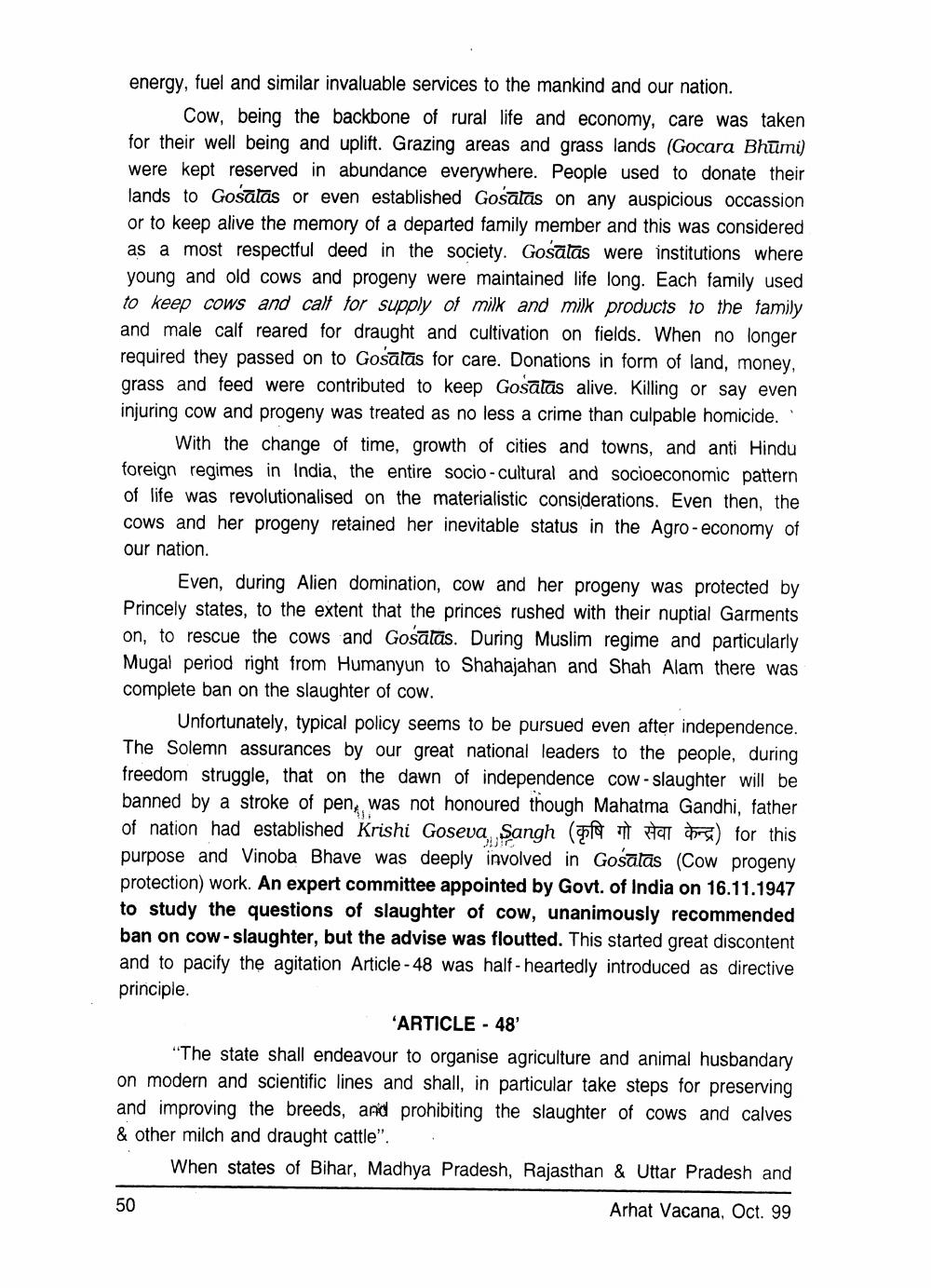________________
energy, fuel and similar invaluable services to the mankind and our nation.
Cow, being the backbone of rural life and economy, care was taken for their well being and uplift. Grazing areas and grass lands (Gocara Bhūmi) were kept reserved in abundance everywhere. People used to donate their lands to Gośātās or even established Gośātās on any auspicious occassion or to keep alive the memory of a departed family member and this was considered as a most respectful deed in the society. Gosālas were institutions where young and old cows and progeny were maintained life long. Each family used to keep cows and call for supply of milk and milk products to the family and male calf reared for draught and cultivation on fields. When no longer required they passed on to Gosālās for care. Donations in form of land, money, grass and feed were contributed to keep Gosātas alive. Killing or say even injuring cow and progeny was treated as no less a crime than culpable homicide.
With the change of time, growth of cities and towns, and anti Hindu foreign regimes in India, the entire socio-cultural and socioeconomic pattern of life was revolutionalised on the materialistic considerations. Even then, the cows and her progeny retained her inevitable status in the Agro-economy of our nation.
Even, during Alien domination, cow and her progeny was protected by Princely states, to the extent that the princes rushed with their nuptial Garments on, to rescue the cows and Gosālas. During Muslim regime and particularly Mugal period right from Humanyun to Shahajahan and Shah Alam there was complete ban on the slaughter of cow.
Unfortunately, typical policy seems to be pursued even after independence. The Solemn assurances by our great national leaders to the people, during freedom struggle, that on the dawn of independence cow - slaughter will be banned by a stroke of penwas not honoured though Mahatma Gandhi, father of nation had established Krishi Goseva, Sangh (glo a tors) for this purpose and Vinoba Bhave was deeply involved in Gośātas (Cow progeny protection) work. An expert committee appointed by Govt. of India on 16.11.1947 to study the questions of slaughter of cow, unanimously recommended ban on cow - slaughter, but the advise was floutted. This started great discontent and to pacify the agitation Article - 48 was half-heartedly introduced as directive principle.
'ARTICLE - 48 "The state shall endeavour to organise agriculture and animal husbandary on modern and scientific lines and shall, in particular take steps for preserving and improving the breeds, and prohibiting the slaughter of cows and calves & other milch and draught cattle".
When states of Bihar, Madhya Pradesh, Rajasthan & Uttar Pradesh and
Arhat Vacana, Oct. 99




